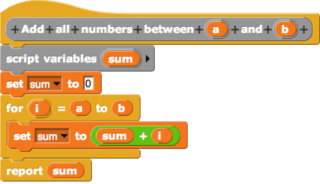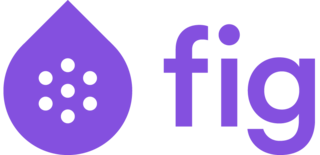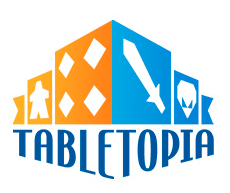In computing, cross-platform software is computer software that is designed to work in several computing platforms. Some cross-platform software requires a separate build for each platform, but some can be directly run on any platform without special preparation, being written in an interpreted language or compiled to portable bytecode for which the interpreters or run-time packages are common or standard components of all supported platforms.
An application program is a computer program designed to carry out a specific task other than one relating to the operation of the computer itself, typically to be used by end-users. Word processors, media players, and accounting software are examples. The collective noun "application software" refers to all applications collectively. The other principal classifications of software are system software, relating to the operation of the computer, and utility software ("utilities").

In computing, a visual programming language, also known as diagrammatic programming, graphical programming or block coding, is a programming language that lets users create programs by manipulating program elements graphically rather than by specifying them textually. A VPL allows programming with visual expressions, spatial arrangements of text and graphic symbols, used either as elements of syntax or secondary notation. For example, many VPLs are based on the idea of "boxes and arrows", where boxes or other screen objects are treated as entities, connected by arrows, lines or arcs which represent relations. VPLs are generally the basis of Low-code development platforms.
Game programming, a subset of game development, is the software development of video games. Game programming requires substantial skill in software engineering and computer programming in a given language, as well as specialization in one or more of the following areas: simulation, computer graphics, artificial intelligence, physics, audio programming, and input. For multiplayer games, knowledge of network programming is required. In some genres, e.g. fighting games, advanced network programming is often demanded, as the netcode and its properties are considered by players and critics to be some of the most important metrics of the game's quality. For massively multiplayer online games (MMOGs), even further knowledge of database programming and advanced networking programming are required. Though often engaged in by professional game programmers, there is a thriving scene of independent developers who lack a relationship with a publishing company.

The Ouya, stylized as OUYA, is an Android-based microconsole developed by Ouya Inc. Julie Uhrman founded the project in 2012, bringing in designer Yves Béhar to collaborate on its design and Muffi Ghadiali as VP of Product Management to put together the engineering team. Development was funded via Kickstarter, raising US$8.5 million, becoming one of the website's highest earning projects in its history.
Video game development has typically been funded by large publishing companies or are alternatively paid for mostly by the developers themselves as independent titles. Other funding may come from government incentives or from private funding.

Oculus Rift is a discontinued line of virtual reality headsets developed and manufactured by Oculus VR, a virtual reality company founded by Palmer Luckey that is widely credited with reviving the virtual reality industry. It was the first virtual reality headset to provide a realistic experience at an accessible price, utilizing novel technology to increase quality and reduce cost by orders of magnitude compared to earlier systems. The first headset in the line was the Oculus Rift DK1, released on March 28, 2013. The last was the Oculus Rift S, discontinued in April 2021.

The GameStick is a discontinued home video game console developed by PlayJam. It is a microconsole the size of a USB flash drive that plugs directly into the back of a TV through an HDMI port and ships with its own Bluetooth controller. Users can download content from a curated storefront via Wi-Fi, with content stored locally for offline access. The device is powered by the PlayJam Games Platform and runs its own version of the Android operating system. It is portable and aimed at casual to mid-core gamers. Like the Ouya, it was funded through Kickstarter.

Reality Labs, originally Oculus VR, is a business and research unit of Meta Platforms that produces virtual reality (VR) and augmented reality (AR) hardware and software, including virtual reality headsets such as Quest, and online platforms such as Horizon Worlds. In June 2022, several artificial intelligence (AI) initiatives that were previously a part of Meta AI were transitioned to Reality Labs. This also includes Meta's fundamental AI Research laboratory FAIR which is now part of the Reality Labs - Research (RLR) division.
Buildbox is a no-code development platform focused on game creation without programming, coding or scripting. The core audience for the software is entrepreneurs, designers and other gaming enthusiast without prior game development or coding knowledge.

Microsoft Solitaire Collection is a video game developed by Microsoft Casual Games and published by Xbox Game Studios for Microsoft Windows. It combines the Solitaire, FreeCell and Spider Solitaire titles that were included with previous versions of Windows. It also introduces Pyramid and TriPeaks to Windows for the first time, as well as new daily challenges and themes. Unlike the games included in Windows 7 and earlier versions, Microsoft Solitaire Collection is freemium adware with Xbox Live integration.

Fig was a crowdfunding platform for video games. It launched in August 2015. Unlike traditional crowdfunding approaches like Kickstarter, where individuals can back a project to receive rewards, Fig used a mixed model that includes individual backing and the opportunity for uncredited investors to invest as to obtain a share of future revenues for successful projects. At the end of 2017, four projects had begun generating returns, returning 245% to Fig investors.

Harebrained Schemes, LLC is an American video game developer based in Seattle, Washington. It was co-founded in 2011 by Jordan Weisman and Mitch Gitelman. Prior to founding Harebrained Schemes, Weisman and Gitelman worked together on the MechCommander and Crimson Skies franchises at FASA, another company founded by Weisman. As of mid-2015, the studio had under 60 employees. The studio was acquired by Paradox Interactive in June 2018.

Golem Arcana was a tabletop miniature wargaming game developed and published by Harebrained Schemes for iOS and Android devices. The game combines physical miniatures on a game board with a mobile app that much of the gameplay takes place in; the physical pieces and the app communicate through the use of a Bluetooth stylus. Several elements of the game, including special abilities and optional missions, exist only within the app.

Rise to Ruins is a city-building strategy video game developed by Raymond Doerr and published by his independent company, SixtyGig Games, for Microsoft Windows, OS X, and Linux. The game was released into Steam Early Access on 27 October 2014.
The Game Creators Ltd is a British software house based in Macclesfield, Cheshire, England, which specialises in software for video game development, originally for the Microsoft Windows platform. The company was established in March 1999 through a partnership between programmers Lee Bamber and Richard Vanner, who were joined by Meash Meakin in 2011 and Deborah Ascott-Jones in 2013.

The Lost Legends of Redwall is a series of six episodic indie adventure games for Microsoft Windows, macOS, and Xbox One developed and published by studio Soma Games. They are the first officially licensed video games to be based on the Redwall book series since its introduction in 1986, and began production following a successful Kickstarter campaign for the Minecraft map "AbbeyCraft" in 2013.

Tabletopia is an online portal for users to play and create virtual tabletop games. The platform is developed by Tabletopia Inc and initially was released as a web browser based service after a successful crowdfunding campaign in August 2015. In December 2016 Tabletopia was released on Steam, and later in 2018 became available in AppStore and Google Play.

There Is No Game: Wrong Dimension is a 2020 puzzle adventure video game developed by the French company Draw Me A Pixel and released for Windows and macOS on August 6, 2020, on Android and iOS on December 17, 2020, and on Nintendo Switch on April 14, 2021. It was inspired by creator Pascal Cammisotto's previous 2015 game jam-winning entry There Is No Game, which he developed under the alias KaMiZoTo. It has been considered a sequel or expansion to its predecessor.











